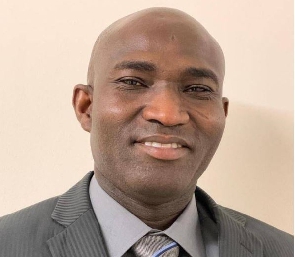Investigators of the Criminal Investigations Department (CID) of the Ghana Police Service, particularly in Kumasi are allegedly extorting monies ranging between ?20,000 and ?3 million from remand prisoners before they were arraigned before the law courts for trial.
The prisoners were simply at the mercy of the investigators (not the courts) because those who could not afford the monies demanded by the police personnel, automatically overstayed their terms, resulting in congestion in the prisons. Fresh inmates were posted on remand on daily basis and forgotten.
Convinced that their rights were being trampled upon and feeling that they were being handed a raw deal, the prisoners have called for a presidential intervention by way of full-scale investigations into the activities of the personnel, which is believed to undermine the rule of law and social justice.
While prison officials confirmed the allegations and the resultant congestion, Regional Crime Officer, Chief Superintendent Paul Frimpong Siaw expressed doubts about the allegation of extortion by investigators, which he described as "very wild". "There is no way an investigator can influence the detention of a suspect in remand custody," he said, adding that the court determined when a particular case had to be tried. He claimed also that no report of extortion had come to his notice.
About 90% of the 441 remand prisoners (as at Sunday, February 21, 2004 when The Chronicle paid a visit to the place) seemed to have been there indefinitely.
During an interaction, some of them claimed they had been there for years and that the CID men, seen as a tool against the NPP, would simply not take them to the courts for trial until they'd paid certain amounts.
The investigators, according to the prisoners, claimed the government had not provided enough logistics for conveying them from the prisons to the courts and vice versa, and therefore they (prisoners) had to help themselves.
The Chronicle gathered that those who could afford it had paid huge sums to buy their freedom.
Baba (not real name) had been on remand for eight years and the investigator handling his case was telling him that his docket could not be traced. Baba could not be prosecuted for as long as the docket was missing. He could not be freed either.
According to Baba, he was remanded together with seven other suspects who had since managed to buy their freedom with the collaboration of the investigators.
During the visit, The Chronicle learnt with shock the reported claim by some investigators that they could not remember handling certain cases for which suspects had been remanded.
Prisoners like Baba faced perpetual incarceration.
Another prisoner Stephen, (also not real name) who was remanded a year ago and sent there from Accra, had not been to court for three months because he could not raise ?20,000 for the investigator on each of the three 'adjourned' dates.
There were quite a few of them who complained that anytime the investigators took them to court, they were not allowed to step inside the court room. According to them, they would hang outside the court, only to be taken back to custody by the investigators without trial with the excuse that the case had been 'adjourned.' "This has been the practice for a very long time in the case of suspects who cannot raise monies demanded by the investigators" they complained to this reporter.
The leader of the remand prisoners, Alhaji Issah, who had served more than seven years in remand custody, described the conditions there as very harsh. He mentioned irregular supply of water, lack of proper medical care for the infirm among them. Some of the inmates were over 65 years and suffered from tuberculosis and stroke.
Congestion was identified as the major problem faced by the prisoners. It was on the lips of every prisoner The Chronicle talked to and they dreaded it like leprosy.
The six cells contained an average of 73 prisoners. In fact, one of them accommodated 82 and the rooms were so overcrowded that prisoners had to fight for spaces to take turns to sleep. In an instance, about 50 people had to squeeze themselves to sleep, while almost the same number leaned against the walls and dozed off whilst awaiting their turn to sleep.
Issah appealed to the authorities to ensure that the prisons were decongested and suggested that suspects in minor cases such as defaulters of fines and assault be handled outside jails.
He confirmed a situation where somebody had been in remand all this while for default in payment of a debt of ?2,000.
The Chronicle also learnt that some of the inmates were there for non-maintenance of their families. Issah believed a better way of dealing with such people would have helped than incarcerating the breadwinner and thus creating congestion in the prisons.
Leader Issah, however, commended prison officials for their efforts at ameliorating their conditions out of their own resources in the area of medicine for the unhealthy.
The police, he alleged, would not even take the sick ones to the hospital.
In the face of these conditions, the prisoners expressed surprise over the Judiciary apparently overlooking the issue of bench warrant to compel the investigators to, at least, produce them in the courts for trial.
They argued that in the case of suspects who jumped bail, the courts were quick to issue bench warrants and described the negligence of this legal requirement by the courts as unfortunate.
Majority of the remand prisoners regretted that they did not have the right to vote, else they would vote the NPP government out for what they deemed its insensitivity to their plight.
Meanwhile, Regional CID boss, Siaw claimed he was not aware of any one having been remanded for eight years in prison "Such a situation is non existent" he told the paper.
He, however, admitted that there had been two persons in remand custody since 2002 and, in a spirited defence, attributed the delay in trying them for the offence of possessing nicotine, to what he called bureaucracy in the system of justice.
Siaw said cases of such serious nature like murder and robbery required thorough investigation before suspects could be prosecuted. According to him, remand warrants were normally renewed in such cases to enable the crime investigators investigate.
He said also that in most cases, the Attorney General's office would have to advise and direct proceedings, causing so much delay in the trial.
Crime Officer Siaw refuted also the allegation that the dockets of some suspects were missing.
Click to view details



General News of Monday, 8 March 2004
Source: Ghanaian Chronicle
















